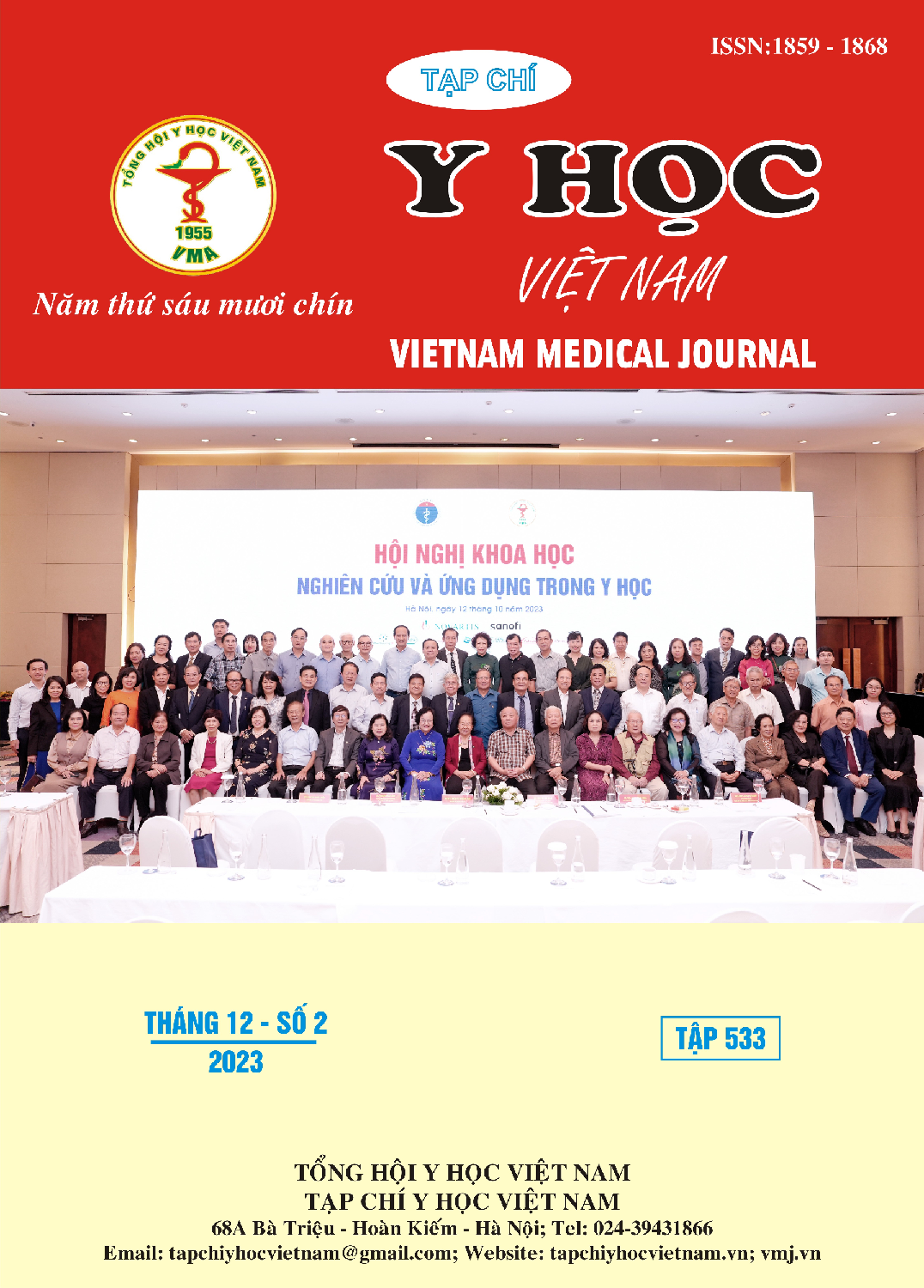MENTAL HEALTH OF MEDICAL STAFF HEALTH WORKER WHO PARTICIPATED PREVENTION/ CONTROL IN COVID-19 EPIDEMIC
Main Article Content
Abstract
The COVID-19 pandemic is a dangerous infectious disease that greatly affects the health and psychology of everyone, especially medical staff on the front lines of the epidemic. The disease is always at risk of breaking out into a pandemic. The objective of the study is to determine the prevalence of anxiety, stress and depression among medical worker who participated prevention/control COVID-19 epidemic at the National Hospital of Tropical Diseases in 2021. Cross-sectional descriptive study on 112 participants. Health workers participating in prevention/control COVID-19 epidemic at the Central Tropical Diseases Hospital in October 2021. Results showed that 28.6% of study participants were anxiety; 16.1% were stressed and 25% of health workers showed signs of depression. Age, seniority, and field of work are factors related to the mental health of health workers participating in COVID-19 prevention/control. Healthcare workers under the age of 35 have a higher risk of experiencing psychological symptoms of anxiety than healthcare workers over the age of 35. The risk of anxiety in people over 35 years old is only 0.23 times that of people under 35 years old (OR = 0.23 (95%CI = 0.07 – 0.64; p < 0.05). Health care workers with fewer than 10 years in the profession are more likely to suffer from psychological stress symptoms than health care workers with less than 10 years in the profession. years in the profession over 10 years (OR = 8.13 (95%CI = 1.14 – 72.04; p < 0.05). Health workers working in non-clinical fields have a lower likelihood of depression compared to the group working in the clinical field (OR = 0.14 (95%CI = 0.02 – 0.56; p < 0.05).
Article Details
References
2. WHO. Coronavirus disease (COVID-19) pandemic. Accessed June 24, 2023. https://www. who.int/europe/emergencies/situations/covid-19
3. Tessema GA, Kinfu Y, Dachew BA, et al. The COVID-19 pandemic and healthcare systems in Africa: a scoping review of preparedness, impact and response. BMJ Global Health. 2021; 6(12):e007179. doi:10.1136/bmjgh-2021-007179
4. Nguyen LH, Drew DA, Graham MS, et al. Risk of COVID-19 among front-line health-care workers and the general community: a prospective cohort study. The Lancet Public Health. 2020;5(9):e475-e483. doi:10.1016/S2468-2667(20)30164-X
5. Teo I, Chay J, Cheung YB, et al. Healthcare worker stress, anxiety and burnout during the COVID-19 pandemic in Singapore: A 6-month multi-centre prospective study. PLoS One. 2021;16(10): e0258866. doi:10.1371/ journal. pone.0258866
6. Blake H, Bermingham F, Johnson G, Tabner A. Mitigating the Psychological Impact of COVID-19 on Healthcare Workers: A Digital Learning Package. Int J Environ Res Public Health. 2020;17(9):2997. doi:10.3390/ijerph17092997
7. Chinvararak C, Kerdcharoen N, Pruttithavorn W, et al. Mental health among healthcare workers during COVID-19 pandemic in Thailand. PLOS ONE. 2022;17(5):e0268704. doi:10.1371/journal.pone.0268704
8. Briciu V, Leucuta DC, Tőkés GE, Colcear D. Burnout, Depression, and Job Stress Factors in Healthcare Workers of a Romanian COVID-19 Dedicated Hospital, after Two Pandemic Years. Int J Environ Res Public Health. 2023;20(5):4118. doi:10.3390/ijerph20054118
9. Mounir I, Menvielle L, Perlaza S, et al. Psychological Distress and Tobacco Use Among Hospital Workers During COVID-19. Frontiers in Psychiatry. 2021;12. Accessed June 25, 2023. https://www.frontiersin.org/articles/10.3389/fpsyt.2021.701810


